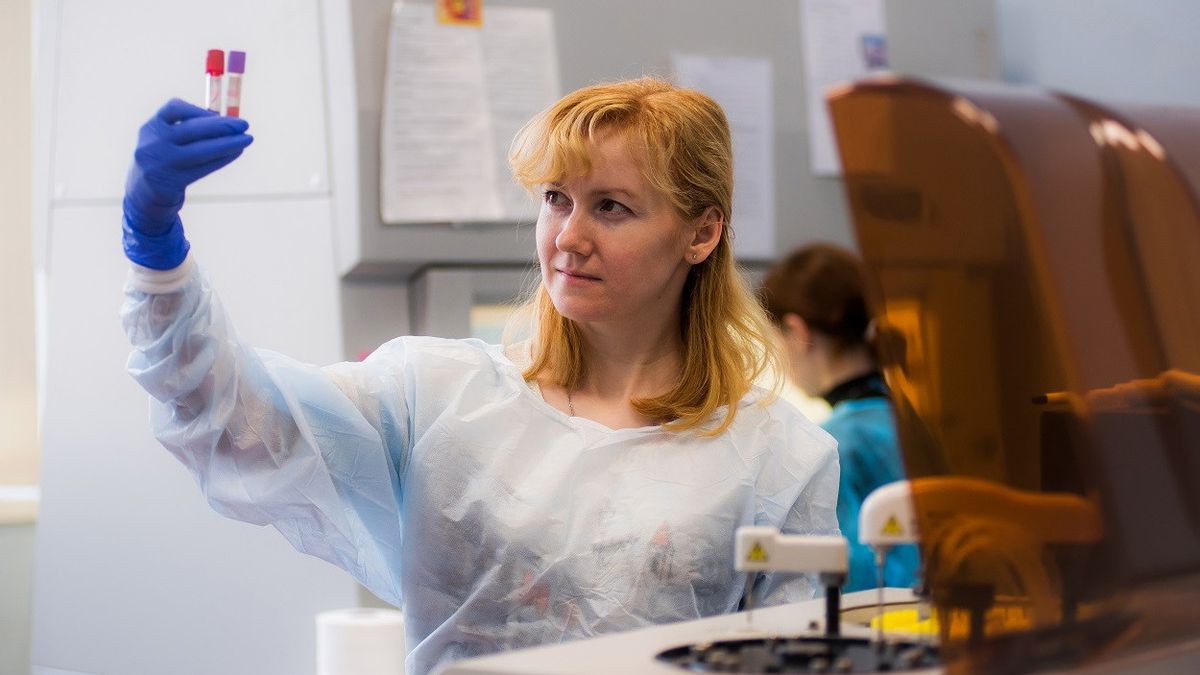JAKARTA - Researchers have identified proteins that may be involved in the early stages of cancer, potentially providing an opportunity to detect the development of the disease more than seven years before its diagnosis.
More than 600 proteins have been linked to 19 types of cancer, including the intestines, prostates to breasts. Some of them were found in a group of people whose blood was collected at least seven years before the diagnosis.
Prof. Ruth Travis, senior molecular epidemiologist at Oxford Population Health and the study's second senior author said, to be able to prevent cancer, we need to understand the factors that drive the early stages of development.
"This research is important because it provides many new clues about the causes and biology of various types of cancer, including insight into what happened years before cancer was diagnosed," he explained.
"We now have technology that can see thousands of proteins in thousands of cancer cases, identify which proteins play a role in the development of certain cancers, and which may have a common effect on different types of cancer," he explained.
In the first study, scientists analyzed blood samples from Biobank UK taken from more than 44,000 people, including 4,900 people who were later diagnosed with cancer.
The team used proteomic studies on proteins to help study how cancer develops and spreads to analyze 1,463 proteins from one blood sample of each person.
They compared the protein of people who were later diagnosed with cancer and others who did not, thus allowing them to identify the differences and determine their connection with the risk of cancer.
Scientists also identified 182 different proteins in blood three years before cancer diagnosis.
In the second study, the researchers looked at genetic data from more than 300,000 cancer cases to analyze which blood proteins were involved in cancer development and could be the target of new treatments.
Dr. Iain Foulkes, executive director of research and innovation at Cancer Research UK, said: "Prevention of cancer means paying attention to early warning signs of the disease".
"That means intensive and tiring research to find a molecular signal that we must pay attention to," he continued.
"The discovery of this study is an important first step in offering preventive therapy which is the main way to provide a longer, better, and free from fear of cancer to the public," explained Dr. Ian.
About 40 proteins in the blood are found to affect the risk of a person being exposed to nine types of cancer: bladders, breasts, endometriums, head and neck, lungs, ovaries, pancreatics, kidneys and non-villages.
While changing these proteins can increase or reduce the chances of a person suffering from cancer, in some cases this can cause unwanted side effects, findings suggest.
Nevertheless, the researchers stressed that further research is needed to determine the exact role of proteins in cancer development.
It is also important to determine which tests are most reliable, what tests can be developed to detect proteins in clinics, and which drugs can target these proteins, scientists added.
A test called the Gallery test is undergoing trials in the UK's NHS. However, this test works by detecting tumour DNA circulating in the blood.
SEE ALSO:
The researchers suggested the protein they found could be a cancer prevention target. It is said that early prevention and detection are needed to continuously increase cancer's survival.
This finding was published in the journal "Nature Communications".
Scientists hope that findings from two studies funded by Cancer Research UK can help prevent cancer before cancer appears.
The English, Chinese, Japanese, Arabic, and French versions are automatically generated by the AI. So there may still be inaccuracies in translating, please always see Indonesian as our main language. (system supported by DigitalSiber.id)

















